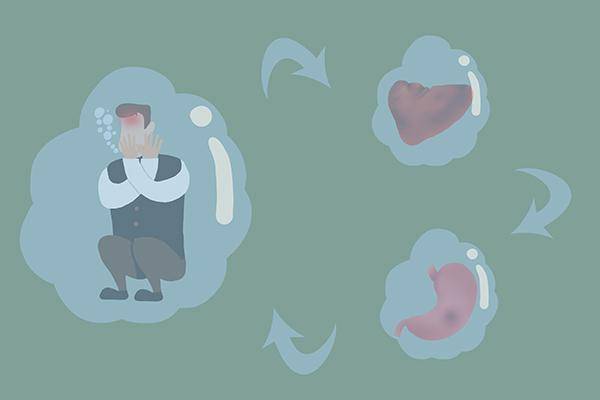The Traditional Chinese Medicine believes: “Spleen deficiency leads to various illnesses, as the spleen is the source of qi and blood transformation.” Every organ in the human body relies on the spleen for nourishment. Spleen deficiency refers to a series of symptoms caused by weakened spleen qi, manifested mainly as vomiting, diarrhea, cold extremities, and edema.
So, who is more likely to experience symptoms of spleen deficiency?
The first group includes obese individuals. In cases of spleen deficiency, the body retains water, leading to edema. This type of obesity is not actual fat accumulation but what is commonly referred to as “false obesity.” Some individuals experience poor digestion due to spleen deficiency, often not feeling hungry, eating little even when hungry, and having difficulty digesting food, resulting in bloating and indigestion.
The second group comprises individuals with cold hands and feet. In the Five Elements theory, the spleen belongs to the Earth element and favors warmth over cold. While the body naturally maintains warmth, some individuals have cold extremities even in warm weather, and during cold temperatures, they struggle to keep warm, mainly due to poor blood circulation caused by spleen deficiency. Some women, in pursuit of beauty, may dress lightly in winter, inviting cold into the body, leading to spleen deficiency.
The third group includes inactive individuals. There is a popular saying online: “If you can sit, don’t stand; if you can lie down, don’t sit.” This describes someone excessively lazy who avoids movement whenever possible. Many individuals are not inherently lazy but lack vitality due to spleen deficiency. Modern office workers spend long hours sitting in front of computers, leading to poor circulation in the lower body. Prolonged sitting increases the risk of spleen deficiency.
What should one eat for spleen deficiency? Traditional Chinese medicine suggests some top spleen-strengthening “champions” that should be consumed in moderation.
Millet is a common food rich in nutrients and used for bodily conditioning in various regions in China. Millet porridge, in particular, is highly nutritious and known as a spleen tonic. It is believed to invigorate the spleen and improve appetite, alleviating symptoms of poor digestion and a lack of appetite. For individuals with chronic spleen and stomach deficiencies, consuming millet in moderation is recommended.
Furthermore, millet can alleviate bloating and diarrhea caused by poor digestion and absorption. Many individuals suffer from digestive issues, leading to indigestion, diarrhea, and constipation. Drinking millet porridge can alleviate these symptoms as it boosts metabolism and aids digestion and absorption.
Consuming millet not only helps with various spleen and stomach disorders but also provides beauty benefits. Lastly, when cooking millet porridge, a thick layer may form on top, often mistaken for impurities from unwashed millet. This layer is actually porridge oil formed after cooking, which nourishes the stomach lining and is beneficial to health.
While millet is beneficial, it should be consumed in moderation and not as the sole staple food. Nutritional balance is essential. Taking care of spleen health is crucial for preventing illness and maintaining overall well-being.


